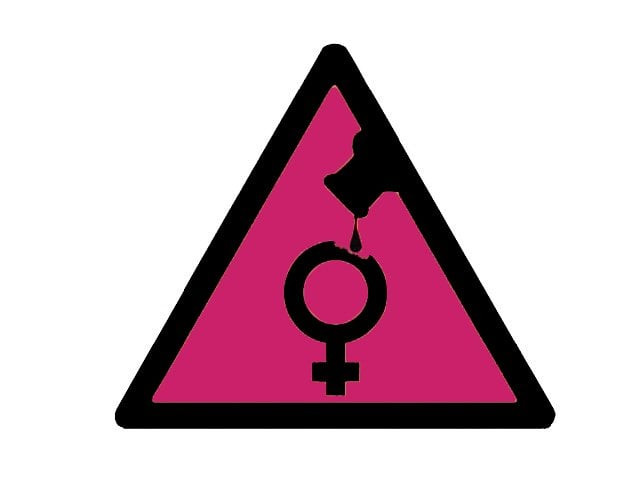Burning issue: ‘Over 50% acid attacks in Pakistan occur in Punjab’
Women caucus meeting discusses Acid and Burn Crimes Bill, 2014.

PHOTO: FILE
The highest rate of acid attacks in the country in 2013 was in the Punjab where 56 percent of the nationwide attacks were recorded, a meeting organised by the women parliamentary caucus in collaboration with Punjab Commission on the Status of Women (PCSW) for an orientation on acid crime laws heard on Thursday.
In the meeting at the Punjab Assembly Committee Room, Valarie Khan, chairperson Acid Survivors Foundation, an NGO, said, “A strong concentration of attacks in Punjab is in southern Punjab, including Multan, Muzaffargarh, Rahim Yar Khan and Bahawalpur.”
The agenda of the meeting was to discuss the Acid and Burn Crimes Bill 2014, which was presented by Women Caucus Convener MPA Azma Zahid Bokhari in the Punjab Assembly last month, and to determine how to make it a law after addressing the issues impeding its approval by the assembly.
Khan said that at least 65 per cent of the acid and burn victims were women and girls, 15 per cent were children and 80 per cent of the survivors earned less than Rs8,000 a month. She said the prosecution rate was 35 per cent, which meant that justice was not provided in 65 per cent of the cases, and in the rest of the cases there were problems in the investigation and trial stages and out-of-court settlement added to the problems of victims.
She said medical care was prohibitively expensive, free rehabilitation services were absent and the state did not even have reliable statistics on the number of victims.
Barrister Saad Rasool, a legal expert, briefed the women lawmakers from the treasury and the opposition on the acid and burn crimes law and recommended that the structure of the proposed law “must have clear definitions of what is acid crime and burn crime as many people do not make a distinction between the two”.
In his presentation, Rasool said the government must also set up an interim monetary relief fund which could also recover the amount of fine imposed by the courts from the convict. He said the government should also provide free healthcare to the hospitalised acid and burn victims.
Rasool said the role of police was very important and under the proposed law the station house officer (SHO) should act as an investigation officer. He said the bill envisaged that the investigation would be completed within 15 days and the authorised court could grant a further 15 days as well as punish lack of diligence or failure to carry out duties. The bill provided for a witness protection programme.
He said under the proposed law, an Acid and Burn Crime Monitoring Board would be established to monitor the production, sale, purchase, storage, transportation, import and trafficking of acid and a chief inspector, a deputy chief inspector and inspectors would be appointed and given the monitoring authority.
Bokhari told The Express Tribune that over the last month and a half she had been corresponding with the Law Department and the Civil Secretariat, which argued that the federal government had legislative authority for Pakistan Penal Code (PPC), Code of Criminal Procedure and the Qanun-i-Shahadat Order and therefore could not be amended by provinces. She said another objection was that the bill talked about setting up an interim monetary fund, which meant that it was a money bill and a private member could not move a money bill.
Bokhari added: “After today’s meeting, I will argue these are provincial matters and we could amend these laws. As second as the second objection is concerned the government has already assured me that they would cooperate.”
Bokhari requested PCSW chairperson Fauzia Viqar to appoint a focal person from the commission to attend all meetings of the caucus for better liaison. Minister for Women Empowerment Hameeda Waheeduddin assured the caucus and the PCSW of complete support in getting the Acid and Burn Crimes Bill 2014 approved at the earliest. She said she would also take up the matter in a meeting with the Punjab chief minister. At the end of the meeting Waheeduddin read a resolution stating that the participants condemned the killing of Farzana Parveen outside the Lahore High Court by her relatives.
Published in The Express Tribune, June 6th, 2014.


















COMMENTS
Comments are moderated and generally will be posted if they are on-topic and not abusive.
For more information, please see our Comments FAQ